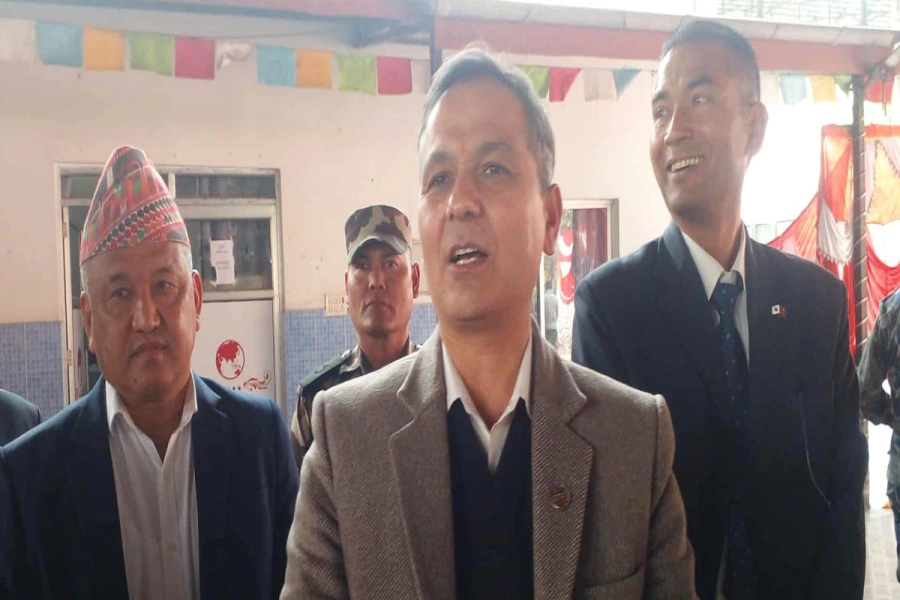KALIKOT, June 8: Malnutrition among children is becoming an increasing challenge in Karnali Province. Despite the provincial government spending millions of rupees to end child malnutrition, the number of malnourished children has not decreased.
In Karnali, where locally produced food barely lasts six months, efforts to reduce malnutrition have largely failed. The government claims to be distributing nutritious flour to villages to combat malnutrition.
However, Saraswati Devkota from Sanni Tribenni Rural Municipality-3 in Kalikot said that local health centers provide nutritious flour only to familiar people. “If we go a day late to collect the flour, staff say it’s not available, and there are constant disputes,” she said.
Kalikot Health Office information officer Katak Mahat reported that 69 children with severe malnutrition were recorded in the district this year. He added that while this number is slightly lower than before, it has not decreased as expected.
Malnutrition on the rise in Lumbini

Despite working all day, many people in Karnali still cannot get enough food to fill their stomachs, and nutrition programs have failed to make an impact. Although the federal government has spent a large amount on multi sectoral nutrition programs in this low-income region, there have been no significant achievements.
Dr Bhishma Prasad Pokharel of Kalikot District Hospital cited poverty, child marriage, poor diet, and lack of sanitation as reasons for the rise in malnutrition. He also noted that severe malnutrition is worsening due to infants not being exclusively breastfed.
While the number of malnourished children has slightly decreased compared to last year, the district health office of Kalikot reports that severe malnutrition cases have actually increased.
Apsara Darji from Mehalmudi, Sanni Tribenni -6, said that despite working all day, she struggles to provide nutritious food to her children due to the constant lack of resources. “No matter how hard I try, there is always scarcity. How can I feed nutritious meals to my children!” she lamented. Darji also pointed out that the government’s slogans and actual actions are different, which adds to the problem.
Sita Bk from Palanta-3 shared that they feed their children whatever is available at home. “Since the health center is far away, it’s difficult to know what illness our children have,” she said.
Experts say that in geographically remote Karnali, if food shortages persist and eating habits do not improve, malnutrition will continue to take root among children. Although the goal is to end hunger and ensure access to nutritious and sufficient food in Karnali by 2030, this has not yet been achieved.
Since 2014, the federal government has implemented a multisectoral nutrition program in Karnali to improve nutrition. To prevent malnutrition, the government runs 16 programs in the region. Nutrition rehabilitation centers are also operating in Surkhet, Dailekh, and Jumla. However, malnutrition remains a persistent challenge.






































